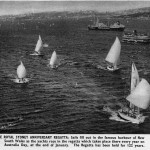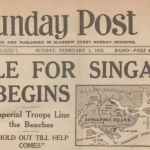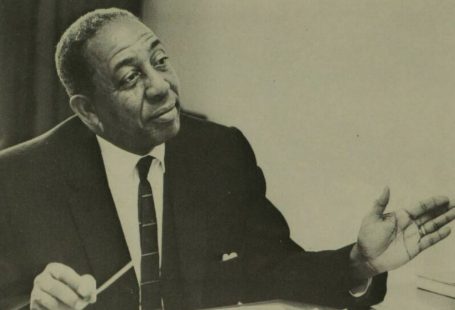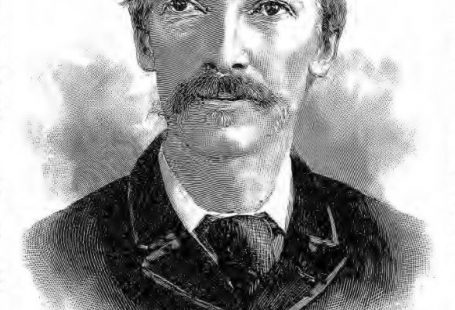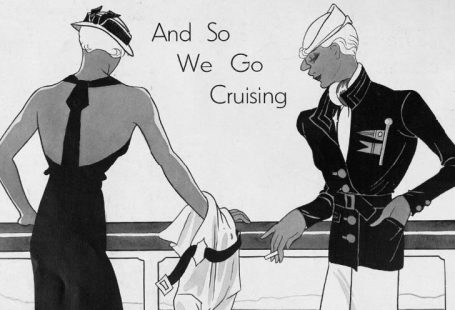
‘Life’s but a walking shadow, a poor player
That struts and frets his hour upon the stage
And then is heard no more’.
– William Shakespeare, Macbeth, Act V, Scene V
These are the lines with which Sir Ian McKellen opens his episode of Who Do You Think You Are? As a septuagenarian, looking backwards to discover from whence (and from whom) he came, it is fitting that he should read these particular lines of Macbeth’s. Furthermore, they are familiar words, as Ian has, during the course of his long and varied career, donned the role of Macbeth.

Sir Ian McKellen was born in north Lancashire and spent his youth in Bolton. He lost his mother to cancer at the tender age of 12 and his father at 24. Following his sister’s death a few years prior, Ian is now the last of his line.
This can be a lonely condition, being the last of one’s family. But Ian has the joy of discovering that he shares with his ancestors a rich tradition of and passion for performance and civic activism. With his robust career in both acting and activism (particularly within the LGTBQ community), he is far from an anomaly in his family and is now, as Ian put it at the end of the episode, ‘more secure as a person’.
On the stage

Sir Ian McKellen’s acting breakthrough happened in the 1960s, and he spent much of his early career on the stage. It turns out, though, that his love of the stage is an inherited trait.
In learning more about his paternal grandmother, Alice Murray, Ian discovers that she, along with her future husband William McKellen, were both actively involved in Christian Endeavour, a religious movement aimed at improving the lives of inner-city workers in the early twentieth century. Newspapers are a wonderful resource to learn more about such local movements and organisations. For example, in this article from the Manchester Courier and Lancashire General Advertiser dated 20 May 1902, you can gain useful insight into the Christian Endeavour movement, both in terms of its aims and in how its members saw themselves.

In her activism within Christian Endeavour, Alice leant her skilled mezzo-soprano voice to its choirs and programs. The family stories that Ian had heard were confirmed when he found evidence that Alice had performed a solo in front of thousands, including William McKellan, who was enchanted by her voice. The two subsequently married.
In his research into Alice, Ian discovered that Alice’s uncle Frank Lowes was an actor!
Specialised newspapers
Specialised newspapers are a fantastic resource. If your ancestor worked in the shipping industry, for example, Lloyd’s List would become your holy grail. For acting ancestors, The Era is essential to your research.
In 1872, The Era printed a favourable review of Frank’s performance in Arrah-na-Pogue, noting that Frank ‘deserves the laurels for his masterly conception of the sneak, Michael Feeny. He looks and acts the character to the life’.

Like his great-great-uncle Frank, Sir Ian McKellen is no stranger to a good review, such as the one he received for his performance in Bent, which is noted as being ‘remarkable’ and ‘in perfect control of the play’s long pauses and fractured silences, minutely detailed and inventive’.

Frank’s big break comes with his casting in the play The Two Orphans, a melodrama offering Frank a leading role. The show was being performed in Bolton but rights had been sold to J. Pitney Weston to tour it all across the north. Again, Frank received positive reviews for his performance.

However, unlike his eminently skilled great-great-nephew, Frank’s career was to take a turn for the worse. Frank had found success with the support of J. Pitney Weston, who had produced The Two Orphans, which landed Frank with a leading role and stable work. However, with Weston’s departure to the United States, Frank found himself in smaller roles in plays of lesser quality, performed to dwindling crowds. The decline in his acting career can be charted amongst the pages of the newspapers from that time.

Did you say ‘dog orchestra’?

The last printed record found of Frank Lowes performing on stage is from The Era, dated 23 July 1892. This final performance took place at the Paddington Palace of Varieties, a music hall. Such establishments gained traction in the 1890s as they competed against traditional music halls and dramatic theatres. The performances, however, were of quite a different calibre than those found in a legitimate theatre. Performing in the Paddington Palace of Varieties would have been quite the demotion for Frank. He would be relegated to performing short dramatic scenes in between the more standard fare of a music hall: musical acts, conjurors, and dog orchestras.
Yes, dog orchestras.
As you could likely glean from Ian McKellen’s facial reaction to hearing that his ancestor was now performing alongside dog orchestras, dog orchestras were hardly intended for a high-brow audience. Mentions of the dog orchestra appear in the newspapers from the end of the nineteenth century.

‘The “Dog Orchestra” is the property of Mr. Louis Lavater, and a very respectable property it is. […] The orchestra consists of six dogs, gorgeously dressed, and provided with specially made instruments. They are not remarkable for pedigree, but they are remarkable for intelligence’. Lavater finally put his dream of a dog orchestra into motion while in Copenhagen working with a circus: ‘He therefore went to the Dogs’ Home in the Danish capital and paid five kroner for a nondescript cur. He took that cur home, fastened a stick on his paw, and persuaded him to beat a tea-tray’. Lavater then went on to train other dogs to play in his orchestra. His dog Jack, for example, was trained to ‘play’ trombone: ‘Jack had to be taught to stand on his hind legs for half an hour at a time; next, to balance himself, holding the trombone in position; then to work the instrument properly; and, finally to act in conjunction with his colleagues’.
“The Dog Orchestra” by John West, The Strand Magazine, vol. XIV, p. 678

Today, such imaginative undertakings would never be permitted. However, their existence reminds us of how startlingly different some aspects of our ancestors’ lives were.
Civic engagement and activism’?

Ian McKellen has been engaged in civic activism for decades, particularly in relation to LGBT rights and equality. Little did Ian know, however, that he is a descendant of an honourable social activist, his great-great-grandfather, Robert Lowes.
Robert’s civic engagement started as a lecturer and director at the Salford Lyceum. In the Manchester Times from 11 March 1843, we read that Robert was teaching a course on humour and pathos. At that time, Robert was just 27 years old, yet he was involved and interested in providing the poor and working classes opportunities for further education and betterment.

Established in January 1839, the Salford Lyceum first appears in papers on The British Newspaper Archive in February 1839.

A primary objective behind the introduction of lyceums was the desire to offer a substitute to the alehouses for the working class. The institution was open to both men and women.

‘The Salford Literary and Mechanics’ Institution was established in 1838 with the title of the Salford Lyceum. Its proposed object was to “facilitate and promote the moral and intellectual improvement of both sexes by means of a news-room, library, reading-room, lectures, classes, concerts, discussions, and literary purposes.” Classes for reading, writing, arithmetic, and drawing, were also gratuitously conducted by qualified teachers’.
The History of Adult Education by J.W. Hudson, p. 137-138
Robert Lowes’ desire for the betterment of the working class did not stop at the lyceum. During the mid-1800s, the working class faced considerable hardship regarding work conditions and the length of the workweek. Most of Manchester’s working class would have worked six days a week and upwards of 15 hours a day.
Transitioning from lectures at the lyceum to campaigning for workweek reform was, in fact, not a huge departure for Robert Lowes. Both endeavours were aimed at the bettering of the working class – in both their leisure time and health. Robert began to campaign for a half-holiday, bringing the workweek down from 6 to 5.5 days.

Through his efforts, he managed to pass the first ever Saturday half-day in Britain. The fact that this was accomplished in Manchester is particularly significant since it was, by the 1840s, the world’s largest industrial city.
After gaining success in workweek reform in one quarter of the workforce, he went on to expand his campaigning. He next turned his attention to needlewomen, some of the most exploited workers of the era, working up to 20 hours a day. Robert even started a publication to expand his campaign: The Lancashire Witches Holiday Herald.
The success that Robert had in revolutionising the workweek has, in essence, made him the grandfather of the modern weekend.

Sir Ian McKellen’s ancestors have left him with a truly remarkable legacy of public engagement, both for entertainment and for the betterment of others. It is a legacy that Sir Ian McKellen has unintentionally carried forth and expanded upon.
Discover what family traits you share with your ancestors!


